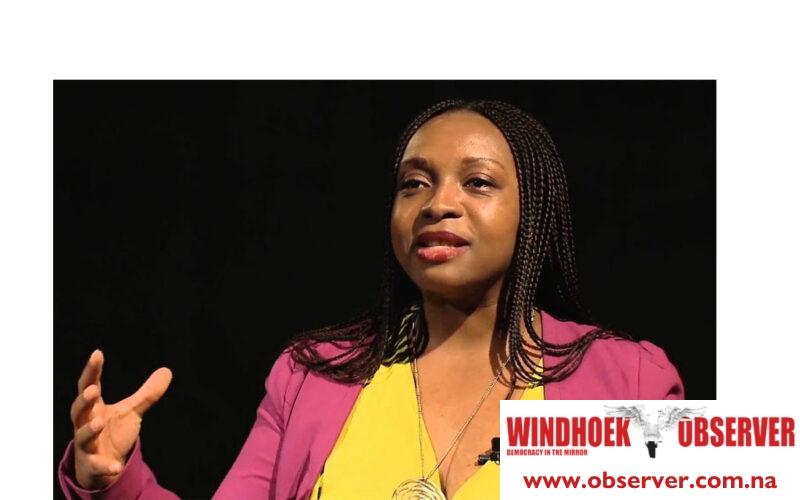Ester Mbathera
Women journalists in sub-Saharan Africa face persistent barriers that hinder their careers, a new report reveals.
The study, conducted by the Fojo Media Institute and African Women in Media (AWiM), identifies gender discrimination, unequal pay, sexual harassment, and limited career progression as key challenges in the industry.
The primary researcher for the study, Yemisi Akinbobola, an award-winning journalist, academic, consultant, and co-founder of African Women in Media (AWiM), found that many female journalists are confined to roles deemed less significant, while their male counterparts dominate decision-making positions.
“I got an opportunity to replace my boss, who was transferred to another unit. I applied for that position, but they told me that only men occupied that position. I insisted and finally, they accepted me. But in the day-to-day activities, my boss reminded me that I have to show that women are also able to lead,” said an executive/C-level manager from Rwanda.
The study also found that women are often assigned “soft news” topics such as lifestyle and entertainment, while men cover politics and hard-hitting investigative stories.
The study had representation from 17 African countries, with the majority of the questionnaire respondents being from the East African region.
Pay disparities remain a significant concern, according to the study, as many women earn lower salaries than men in similar positions and struggle to access promotions.
The data showed that women journalists across career levels from the Democratic Republic of the Congo, Kenya, Rwanda, Uganda, and Zimbabwe were earning less than U$500 and in part-time employment.
Those from Kenya, Nigeria, Rwanda, South Sudan, Uganda and Zimbabwe who were freelancers or self-employed across career levels and also earning less than U$500.
Respondents from Botswana, Cameroon, Kenya, Nigeria, Rwanda, Somalia, South Sudan, Tanzania, and Uganda, who are earning $500 to $999 per annum, were across career levels and primarily in full-time, part-time and freelance job roles.
Comparably, 23% of respondents said they earn U$1 000 to U$4 999 per annum.
The majority of the respondents worked in part-time, full-time, freelance, or self-employed positions across a range of career levels.
These participants were primarily from Zimbabwe, Uganda, Tanzania, South Africa, Rwanda, Nigeria, Malawi, Kenya and Ghana.
Some respondents claimed that rather than merit, personal relationships with male superiors frequently influenced salary increments and career advancements.
A lack of transparency in newsroom policies further exacerbates the situation.
Sexual harassment is widespread, with women journalists reporting experiences of inappropriate advances, coercion, and intimidation from colleagues, bosses, and even sources.
Some respondents shared accounts of being pressured into sexual relationships in exchange for job security or career growth.
Fear of retaliation discourages many from reporting these incidents.
“One male editor demonised me, saying I was out to take away other people’s jobs and that I should stick to my job description. When I proved to be unstoppable, he started making sexual advances. He could send me carrots with p*nis images on WhatsApp. On realising that I ignored him, that marked the start of him frustrating me. My pitches during briefs and debriefs could not make it for stories on air,” said one respondent.
The study also found that family responsibilities often hinder women’s career progression.
Maternity leave policies are inconsistent, and some women face discrimination after childbirth.
Many struggle to balance newsroom demands with caregiving responsibilities, leading some to leave the profession altogether.
“I have passed up two great opportunities because, one, I was married, I didn’t want to change location, and second, I was married and expecting our first son. Even though I wanted it, I flunked the interview (didn’t put much [in]to it because my husband didn’t really want it)…” said a mid-career journalist from Nigeria.
Despite these challenges, the report identifies strategies to support women journalists.
It calls for stronger newsroom policies on gender equality, clear pathways for career advancement, and the enforcement of anti-harassment measures. The study urges media organisations to create inclusive environments where women can thrive.
Researchers recommend that journalism training institutions integrate gender-focused education into their curricula.
They also call on policymakers to hold media houses accountable for implementing equitable policies.
“The first battle is to have specific policies to identify that it is an issue because you cannot solve the problem without people acknowledging that it was a problem. The second step is then to see the policy through to implementation with people and women are promoted, and then the third follow-up would be to have supporting policies to that policy, of having women empowered to ensure that female editors earn as much as male editors, that you know how are they treated in terms of issues like everyday sexism, workload etc. And then the third issue is the mentorship and grooming,” a senior media manager from South Africa.




